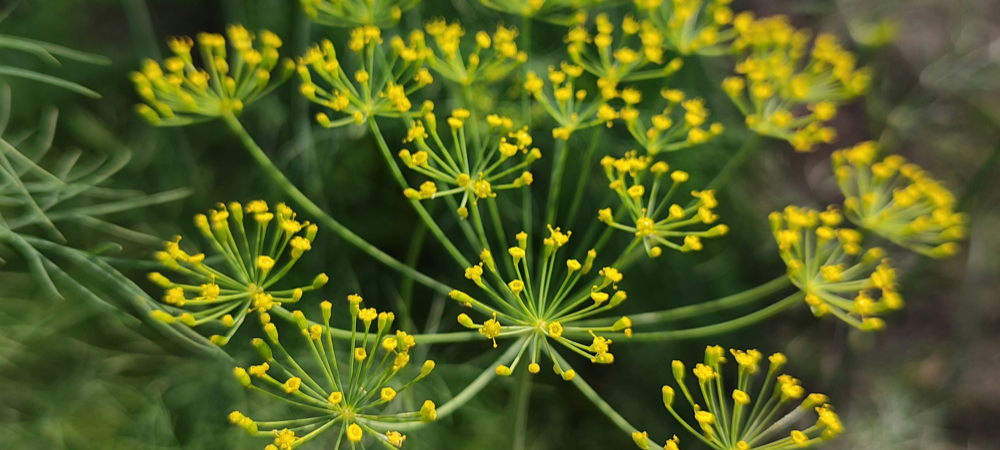Dill seeds are not just for pickles. This spice (Anethum graveolens) has been traditionally used in various cultures for its medicinal properties, including postpartum healing and lactation support.
We use dill seeds in both our Lactation Teas and our Lactation Sprinkle. My mother prepared a traditional Gujarati tea made with dill seeds, called Sava Nu Chai, for me every morning until I was 3 months postpartum and had left the fourth trimester. This tea has been passed down through generations and was an integral part of my postpartum care.
Dill seeds have been used for thousands of years for postpartum healing and lactation support due to the following benefits it offers:
Postpartum Healing
Anethole is a phytoestrogenic compound found in dill seeds that mimics the effects of estrogen in the body. It helps stimulate uterine contractions, which are necessary for the process of involution (the return of the uterus to its pre-pregnancy size and shape) and the expulsion of any remaining tissue or blood clots from the uterus postpartum.
Involution is mainly driven by hormonal changes and does not typically require specific interventions beyond proper postpartum care, including adequate rest, hydration and nutrition. Dills seeds are traditionally used to support this natural process.
Supports Lactation
The anethole in dill seeds also stimulates the production of prolactin, a hormone involved in lactation, thereby supporting milk supply.
Prolactin is a key hormone that regulates various aspects of milk production, from the development of mammary glands during pregnancy to the synthesis and secretion of milk during lactation.
Aside from dill seeds, anethole is found in various other plants, herbs, and spices, including fennel, a common ingredient found in lactation teas and supplements.
Digestive Benefits
The digestive system of new mothers may be sensitive and many may experience discomfort or bloating post-delivery. Two compounds in dill seeds - carvone and limonene - are known for their digestive properties and are often used to alleviate digestive issues such as bloating, gas and indigestion.
Carvone helps alleviate gas and bloating by promoting the expulsion of gas from the digestive tract.
Limonene exhibits antispasmodic effects, which means it can help relax the smooth muscles of the digestive tract and can reduce spasms and cramping, easing symptoms of indigestion and abdominal discomfort.
While there is plenty of anecdotal evidence and historical usage of dill seeds for postpartum care, scientific research on their specific effects is limited.
As with any dietary or herbal remedy, it's advisable to consult with healthcare professionals before using any herbal supplement, especially if you have any underlying health conditions or are taking medications.
For more tips and info, check out our Instagram page: https://www.instagram.com/mrspatels





Share:
Working From Home, with Baby
How to Create a Successful Daily Routine with Your Newborn